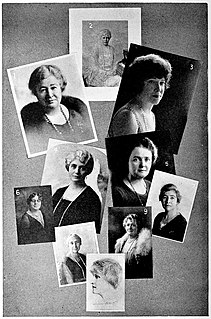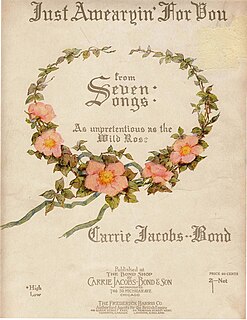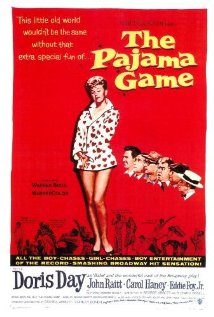
Sir Arthur Seymour Sullivan MVO was an English composer. He is best known for 14 operatic collaborations with the dramatist W. S. Gilbert, including H.M.S. Pinafore, The Pirates of Penzance and The Mikado. His works include 24 operas, 11 major orchestral works, ten choral works and oratorios, two ballets, incidental music to several plays, and numerous church pieces, songs, and piano and chamber pieces. His hymns and songs include "Onward, Christian Soldiers" and "The Lost Chord".

Sir Henry Joseph Wood was an English conductor best known for his association with London's annual series of promenade concerts, known as the Proms. He conducted them for nearly half a century, introducing hundreds of new works to British audiences. After his death, the concerts were officially renamed in his honour as the "Henry Wood Promenade Concerts", although they continued to be generally referred to as "the Proms".

Joseph and the Amazing Technicolor Dreamcoat is a musical with lyrics by Tim Rice and music by Andrew Lloyd Webber. The story is based on the "coat of many colours" story of Joseph from the Bible's Book of Genesis. This was the first Lloyd Webber and Rice musical to be performed publicly; their first, The Likes of Us, written in 1965, was not performed until 2005.

Newsies is a 1992 American musical comedy-drama film produced by Walt Disney Pictures and directed by choreographer Kenny Ortega in his film directing debut. Loosely based on the New York City Newsboys' Strike of 1899 and featuring twelve original songs by Alan Menken and an underscore by J.A.C. Redford, it stars Christian Bale, David Moscow, Bill Pullman, Robert Duvall and Ann-Margret. It was the first completely live-action musical that Disney produced.
Parlour music is a type of popular music which, as the name suggests, is intended to be performed in the parlours of middle-class homes by amateur singers and pianists. Disseminated as sheet music, its heyday came in the 19th century, as a result of a steady increase in the number of households with enough surplus cash to purchase musical instruments and instruction in music, and with the leisure time and cultural motivation to engage in recreational music-making. Its popularity waned in the 20th century as the phonograph record and radio replaced sheet music as the most common method of dissemination of popular music. This is the middlebrow and lowbrow music from which European classical music began to gradually and eventually self-consciously distance itself beginning around 1790.

Carrie Minetta Jacobs-Bond was an American singer, pianist, and songwriter who composed some 175 pieces of popular music from the 1890s through the early 1940s.
Alonso Mudarra was a Spanish composer of the Renaissance, and also played the vihuela, a guitar-shaped string instrument. He was an innovative composer of instrumental music as well as songs, and was the composer of the earliest surviving music for the guitar.
Frère Jacques (, French: [fʁɛʁ ʒɑk], in the nursery rhyme and in song more generally [fʁɛʁə ʒɑkə], also known in English as Brother John, is a nursery rhyme of French origin. The rhyme is traditionally sung in a round.
"Temptation" is a popular song published in 1933, with music written by Nacio Herb Brown and lyrics by Arthur Freed.

A show tune is a song originally written as part of the score of a musical stage show or musical, especially if the piece in question has become a standard, more or less detached in most people's minds from the original context. Particular musicals that have yielded popular “show tunes” include:
Paul Ross Jacobs is an American composer and musician.
Sarah Durkee is a singer-songwriter, a television lyricist and screenwriter, and an author and humorist.
"Little Girl Blue" is a popular song with music by Richard Rodgers and lyrics by Lorenz Hart, published in 1935. The song was introduced by Gloria Grafton in the Broadway musical Jumbo.
"You Stepped Out of a Dream" is a popular song with music written by Nacio Herb Brown and lyrics by Gus Kahn that was published in 1940. The song has become a pop and jazz standard, with many recorded versions.
"Glad to Be Unhappy" is a popular song composed by Richard Rodgers, with lyrics by Lorenz Hart. It was introduced in their 1936 musical On Your Toes by Doris Carson and David Morris, although it was not popular at the time, as there was only one 1936 recording of the tune. In the 1937 London production, it was sung by Gina Malo and Eddie Pola. The song was performed in the 1954 Broadway revival by Kay Coulter and Joshua Shelley.
"You Were Meant for Me" is a popular American song with music by Nacio Herb Brown and lyrics by Arthur Freed, published in 1929.
"Time on My Hands" is a popular song with music by Vincent Youmans and lyrics by Harold Adamson and Mack Gordon, published in 1930. Introduced in the musical Smiles by Marilyn Miller and Paul Gregory, it is sometimes also co-credited to Reginald Connelly.

"Just Awearyin' for You" is a parlor song, one of that genre's all-time hits.

Rolf Jacob Sartorius is an American singer and internet personality, who rose to fame via social media from posting lip-syncing videos on musical.ly and TikTok. In 2016, he released his debut single "Sweatshirt", which reached the Hot 100 charts in the United States and Canada. Jacob Sartorius was the 9th most searched musical artist of 2016.

Musical.ly was a social media service headquartered in Shanghai with an office in Santa Monica, California, on which platform users create and share short videos. The first prototype was released in April 2014, and the official version was launched in August of that year. Through the app, users could create 15-second to 1 minute lip-syncing music videos and choose sound tracks to accompany them, use different speed options and add pre-set filters and effects. The app also allowed users to browse popular "musers", content, trending songs, sounds and hashtags, and uniquely interact with their fans.












